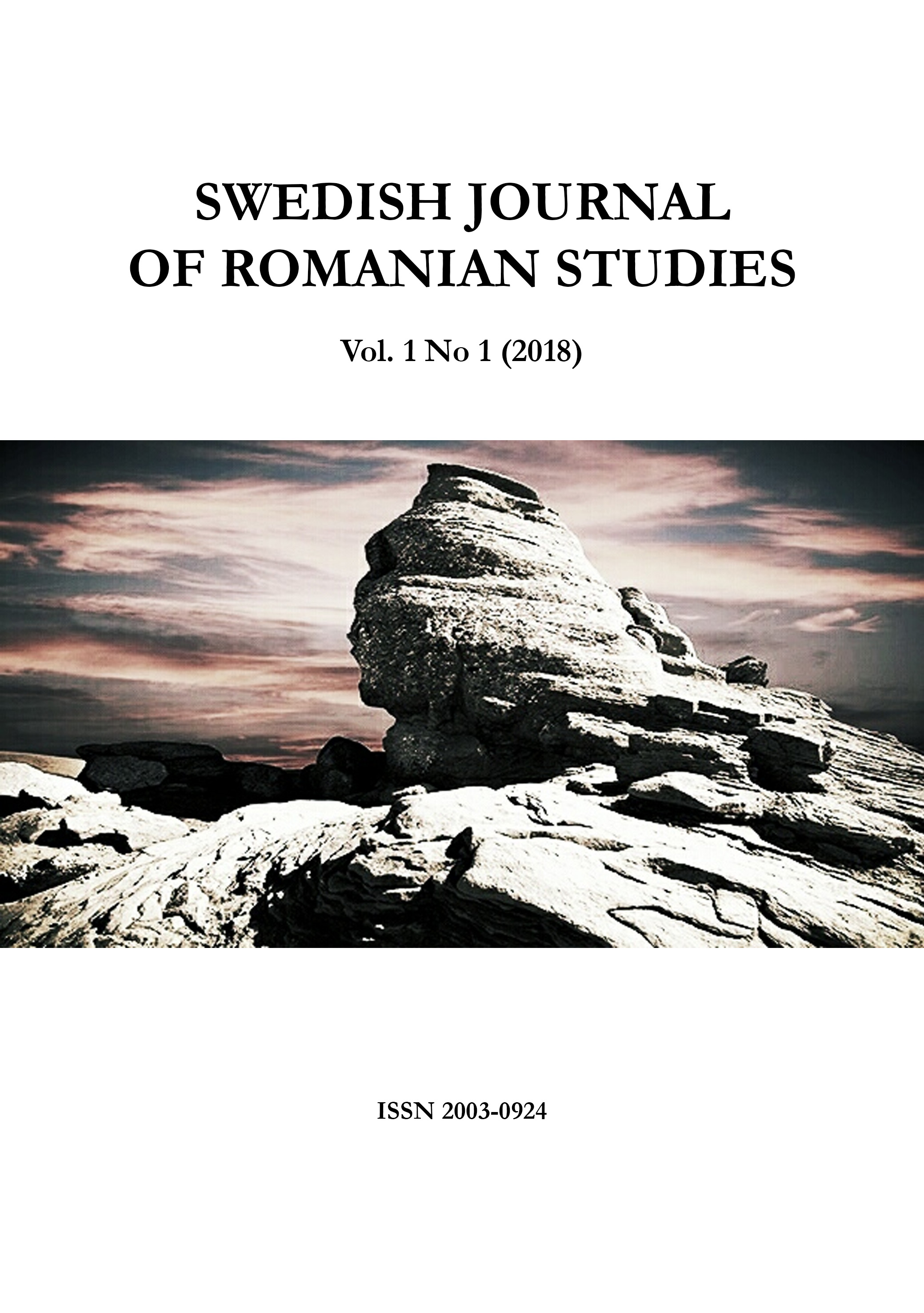Adaptare și imitație în romanele "No Time Like the Present", de Nadine Gordimer și „Vremea Minunilor", de Cătălin Dorian Florescu / Adaptation and mimicry in the novels “No Time Like the Present”, by Nadine Gordimer and “Vremea minunilor”, by Florescu
DOI:
https://doi.org/10.35824/sjrs.v1i1.16810Keywords:
South Africa, adaptation, imitation, violence, relocationAbstract
In a series of lectures in 1994, Nadine Gordimer remarks the different status of Africa which is no longer at the edge of the empire, but on the contrary, in the center of it. In this respect, post-apartheid Africa has rebuilt its national identity on the background of global events that write universal history, offering citizens the chance to escape their country's constraints and bring important key elements in the globalization process.
Thus, replacing apartheid themes in a new country is an extreme task by the applicant. Some of the favourite subjects of the “old guard” are the following: the importance of multiculturalism in post-apartheid South Africa, the writer's status, vulgarisation of violence due to mass-media, reconciliation with a violent past and their economic and cultural implications, the fight against AIDS, sexual emancipation, globalization and loss of cultural and national identity, uprooting, migration and economic exile which replaced major pre-existing concerns about violence, racial and gender discrimination, the relationship between literature and politics, or the role of ethics in literature.
The same situation can be applied to eastern countries. Even though they were not “postcolonial” in the classical sense of the term, applicable to the former British, French, Spanish, Portuguese or Dutch colonies, the “post-communist transition ”through which they passed included the disarmament of a certain political and economic “occupation”.
People had to adapt to the new order, to the new reality, which was a complex process, a difficult one that implied, many times, exile.
Therefore, the purpose of my argument is to present what consequences can occur at the psychological level because of the attempt of adaptation of the characters to the new social and political order, by imitation, postcolonial and post-communist context. And here comes the question: does imitation facilitate adaptation? Although the logical answer would be yes, we will notice, by discussing the two texts, exactly the opposite.
References
Alexandrescu, S. (2000). Identitate în ruptură. Mentalități românești postbelice / Identity in breach. Post-war Romanian Mentalities, București: Editura Univers.
Bhabha, H. K. (1994). The location of culture. London and New York: Routledege.
Caraivan, M.-L. (2017). Nadine Gordimer and the Rhetoric of Otherness in Post-Apartheid South Africa. Cambridge ScholarsPublishing. accesibil lahttps://books.google.ro/books?id=eTjZDQAAQBAJ&pg=PR7&lpg=PR7&dq=Caraivan,+MariaLuiza+Nadine+Gordimer+and+the+Rhetoric+of+Otherness+in+PostApartheid+South+Africa&source=bl&ots=CfQAnu3caM&sig=t4H2EVCI7WsNYabPGbmKABKf0_k&hl=ro&sa=X&ved=0ahUKEwjq3_qMurzZAhVGbFAKHfbSCtkQ6AEIPzAD#v=onepage&q=Caraivan%2C%20MariaLuiza%20Nadine%20Gordimer%20and%20the%20Rhetoric%20of%20Otherness%20in%20PostApartheid%20South%20Africa&f=false, vizualizat la 25 august 2017.
Chebac, A. (2014). Interviu cu Cătălin Dorian Florescu / Interview with Cătălin Dorian Florescu [Online] Available: http://www.bookblog.ro/interviu/catalin-dorian-florescu-uneori-sunt-invitat-sa-citesc-la-aeroportul-din-zurich-de-catre-grupuri-de-elvetieni-care-apoi-iau-avionul-spre-bucuresti/ [Accesat 09 Ianuarie 2017]
Cioban, F. (2011). Cătălin Dorian Florescu-scriitor elvețiano-româno-german / Cătălin Dorian Florescu - a Swiss-Romanian-German writer, [Online]Available:http://www.philippide.ro/Metafore%20ale%20devenirii_2011/17.%20F.%20Cioban.pdf, [Accesat 09Ianuarie 2017]
Florescu, C. D. (2013). Vremea minunilor / Time of Wonders, trad. din limba germană de Adriana Rotaru. București: Ed. Polirom.
Gordimer, N. (2013). No time like the present. London: BloomsburyPublishingPlc.
Lefter, I. B. (2001). Poate fi considerat postcomunismul un post-colonialism? / Can Postcommunism be considered a kind of Postcolonialism? .„Caietele Echinox”.issue: 1 / 2001, p. 117-119, on www.ceeol.com.
Mușat, C. (2001). Identități alternative. Variațiile identității în spațiul public postcomunist / Alternative Identities. Variatons of Identity in the Postcommunist Public Space, „Caietele Echinox”, issue: 1 / 2001, p. 221-223, on www.ceeol.com.
Prose, F. (2012). Future Imperfect, “No Time Like the Present”, by Nadine Gordimer, accesibil la http://www.nytimes.com/2012/04/08/books/review/no-time-like-the-present-by-nadine-gordimer.html - April, 6, 2012.
Ricoeur, P.l (2001). Memoria, istoria, uitarea / The Memory, the History, the Obliteration, Trad. de Ilie Gyurcsikși Margareta Gyurcsik. Timișoara: Ed. Amarcord.
Said, E. W. (2001). Orientalism: concepțiile orientale despre Orient / Orientalism: the Oriental Conceptions about Orient, trad. de Ana Andreescu, Doina Lică. Timișoara: Ed. Amarcord.
Sankaree Govender, D. (2014). Nadine Gordimer: No Time Like the Present, accesibil la https://carteblanche.dstv.com/nadine-gordimer-time-like-present/, accesat la 1 august, 2017.
Ştefănescu, B. (2012). Postcommunism, Postcolonialism: Siblings of Subalternity. Bucureşti: Editura Universităţii Bucureşti.
Downloads
Published
How to Cite
Issue
Section
License
Copyright (c) 2018 Simina Pîrvu

This work is licensed under a Creative Commons Attribution-NonCommercial 4.0 International License.
Authors who publish with this journal agree to the following terms:
a. Authors retain copyright and grant the journal right of first publication with the work simultaneously licensed under a Creative Commons Attribution-NonCommercial 4.0 International License that allows others to share the work with an acknowledgement of the work's authorship and initial publication in this journal.
b. Authors are able to enter into separate, additional contractual arrangements for the non-exclusive distribution of the journal's published version of the work (e.g., post it to an institutional repository or publish it in a book), with an acknowledgement of its initial publication in this journal.
c. Authors are permitted and encouraged to post their work online (e.g., in institutional repositories or on their website) prior to and during the submission process, as it can lead to productive exchanges, as well as earlier and greater citation of published work (See The Effect of Open Access).

